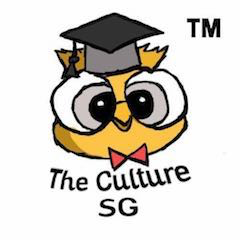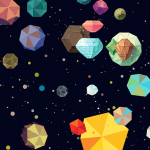“Books serve little purpose in education as technological developments become more sophisticated.” How far do you agree?
Define
Sophisticated- to be more complex, challenging, makes learning easier and faster, almost instanteously
Technological developments- wiring the world closer together, overload of new information, may lead to information paralysis
Little purpose- losing relevance, especially in view of the 21st Century world
This question requires students to compare if books still have any relevance in this IT savvy world, especially when they can always resort to using e-books as a substitute. Also, students are required to compare and discuss against other methods which educators use in education, preferably IT related methods, and see if books still have a place to fill. This question also assumes that the 21st century world is highly complex and dynamic, so much so that only technological gadgets can keep abreast with these developments. Books would have been outdated given how fast information changes in this world and not suited for learning. This is especially so when schools worldwide are implementing IT in their teachings. In Singapore, we have “Future schools” where lessons are taught using technological gadgets in order to make lessons more interactive.
No books have lost their relevance in education with technological developments
1.Using IT gadgets to teach will make lessons more engaging and innovative, helping to enhance students’ learning, considering that a large proportion of students are visual learners. Educators will be able to cater to their students, especially those students with learning disabilities such as ADHD and Dyslexia.
2.Technological developments have rendered educators a platform to provide an experiential learning for students. Such experiential learning helps to introduce the context of learning to students. For instance, students will be able to understand how chemical reactions occur between 2 chemicals when they play with their Ipads and witness for themselves first hand on how to add and subtract chemicals that they are creating.
3.Sophistication of technology meant that information can easily be acquired, disseminated and even updated at the speed of light which helps to aid learning. This ensures that learning is always up-to-date and relevant in this information age, where information gets outdated as fast as it gets out. Relevance is critical to ensure that students have the cutting edge information to compete with the rest in the global world.
Books still have relevance in education even with technological developments
1.Though some may argue that books are redundant as they are outdated once they are printed, one should not totally dismiss books as there is still value in the printed information. Information could be outdated as context changes but there is still value for students to learn from the past context and try to apply it to present context.
Some books are always viewed as a classic. A popular classic investment book includes Benjamin Graham’s The Intelligent Investor that many professional investors still refer to as the “holy grail” of investing even though it has been written ages ago. Learning from books still have relevance even if the internet and trading platforms can educate us on investment theories as certain rules still apply up to today.
2.Books as a form of cheap educational tool is still highly valued in today’s world as not everyone has the ability to afford a technological learning tool even with government’s subsidies. Also, not every student has the preference of using a notebook for learning.
What do you think are some of the roles books can play in education, considering that now we have a widespread of IT apps to help learning? Where do you think E-books fit in all these arguments? Pls post and lets discuss from here.
Students should note that by the nature of the subject, there is several other possible pointers too, so feel free to discuss freely below!
Back to: 2015 A’levels H1 General Paper (8807) suggested solutions
[…] “Books serve little purpose in education as technological developments become more sophisticated.…(Traditional media vs. S&T) […]
Leave a Comment


Where is the blind part for blind people
For books, you can discuss how books fulfill this tactile feel for blind people, which they need to decipher the information, rather than resorting to the computer. Of course, computer allows individuals to access auditory devices which books can’t.
Hi there.
I wrote that books still have a place for young children who may lack the discipline to be on task when using their technological devices for learning. Books will not have such a problem. But after that I counter that by saying that with technological advancements, in many gadgets there are kids mode features that can be utilised to lock away certain apps so that the children will not procrastinate from learning using such electronic gadgets.
I wrote a point about the technology being able to cater to different types of learners such as visual and auditory etc.
I also wrote that with technology, there is no need for books in order to learn and I cited the Khan Academy as an example.
Are these points ok?
I personally feel that the first point you made and its counter were really inconsequential in that it was a direct “Yes/No” comparison. Perhaps it would have been better to argue that books with pop-ups and interactive pages (like a cloth book that includes the fur of different animals) aid a young child’s learning more effectively than technology can where the sense of touch cannot be replicated successfully.
Then you can go on to illustrate how while books still enjoy an advantage in this area, technology allows for the use of other sensory elements in education, often in concert (e.g. sound, visual or even physical movement as is the case with Wii games) or that perhaps, it is expected that in the future, with the development of 3D visualization and projection, technology will also be able to perform these roles for children, perhaps even better than the book and therefore supplanting it. This makes use of a now vs future comparison and I believe contributes to a more nuanced argument.
I personally feel that to answer the question, the points made must demonstrate how technology is superior to the book and how it will be capable of supplanting it, therefore relegating the book to obsolesce.